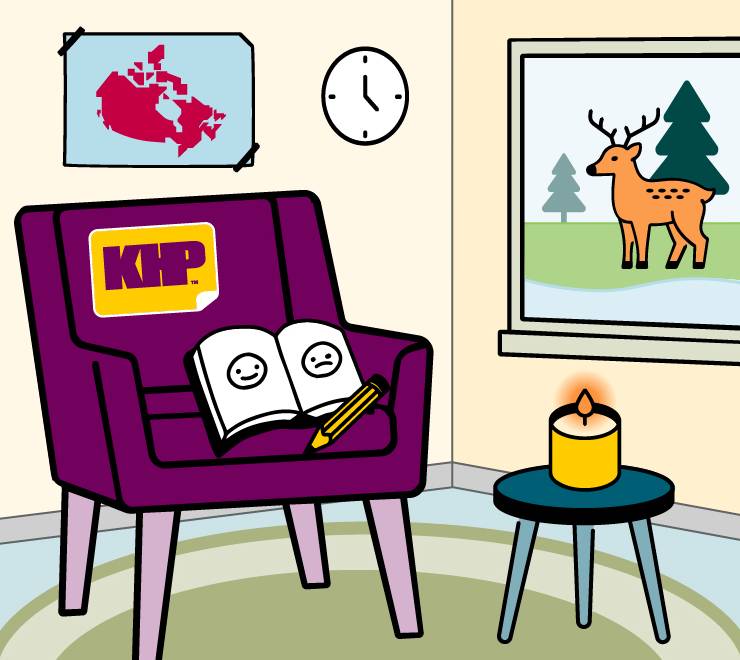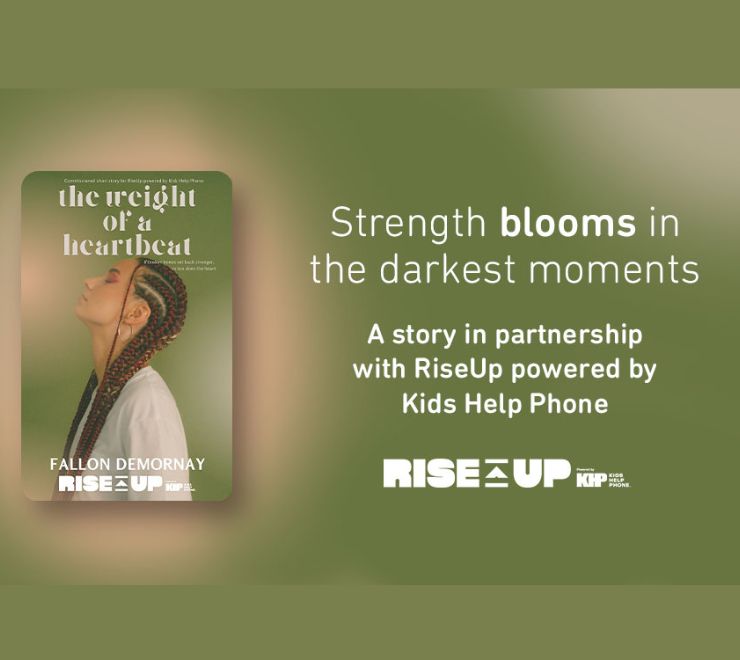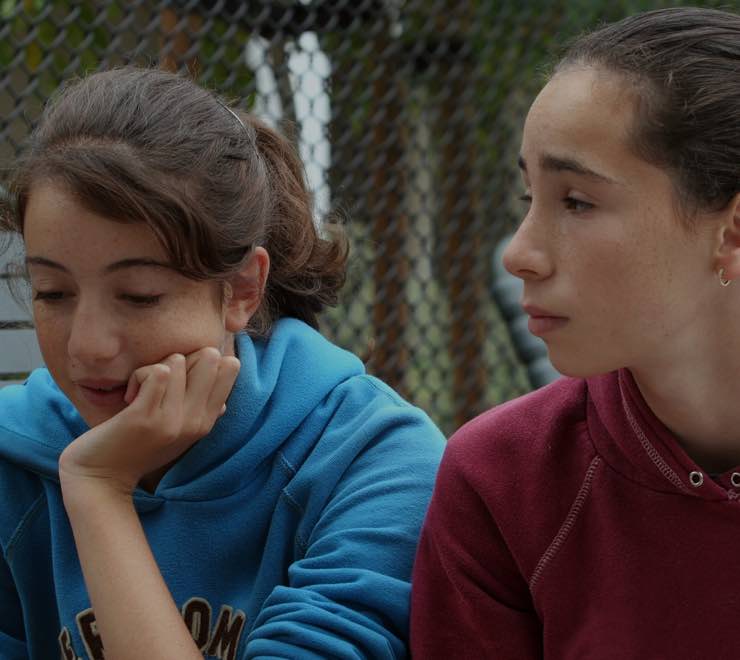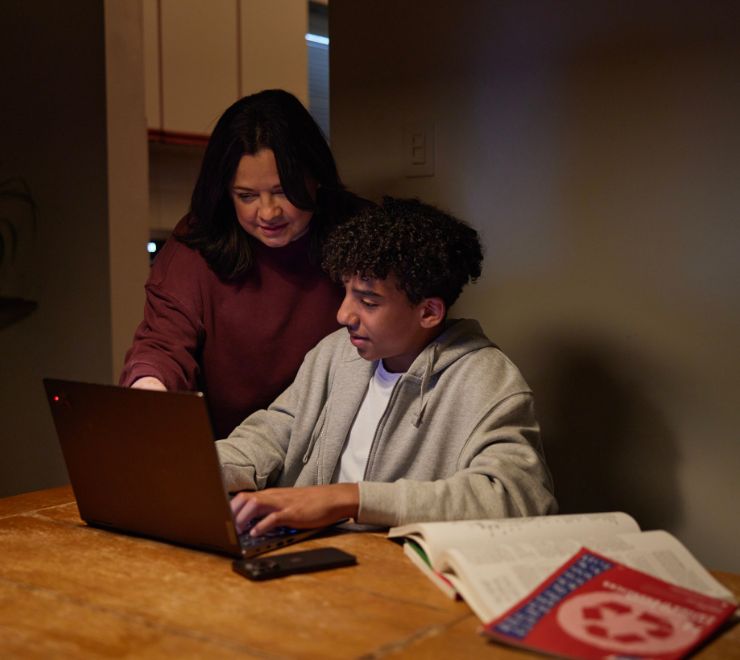Being friends doesn’t mean you’ll never argue. Disagreeing can be a sign of a healthy relationship, especially if it’s done respectfully.
It’s important to fight fair and to make up after an argument. In good, productive arguments, both people get to say what’s on their mind without feeling judged, mocked or insulted.
How to fight fair
Find connections
- Don’t make accusations. Say, “I felt ‘X’ when ‘Y’ happened,” instead of “I can’t believe you did that to me.”
- Never call your friend names or use physical threats or violence.
- Don’t broadcast your argument to other people. That means not writing about it on social media or telling other friends about your fight.
- Stay calm. If you find yourself getting upset, take time out. Agree to talk again once you’ve had time to cool off.
- Don’t bring up old grudges. Discuss the conflict you’re dealing with now, not one that you had six months ago.
Making up
Try not to stay mad for long. Take a step back and think about whether the argument is worth losing the friendship over. If it isn’t, here are some ways to make up:
- Apologize.
- Try to explain where you were coming from.
- Make plans to see each other soon.
- Do something fun and try to put the argument aside.
- If there’s more to say, meet somewhere neutral (like a coffee shop) and try to talk about it calmly.
- Try to forgive and move on.
- Agree to disagree. Try to move on in the friendship even if you don’t come up with a solution to your argument.
Jealousy
Jealousy is an emotion that is typically experienced when you compare yourself to someone else, or want something that someone else has. It’s common to compare yourself to friends, and sometimes this can cause jealousy.
You may feel jealous about your friend’s:
- dating relationships
- popularity
- grades
- family
- athletic ability or other talents
- clothing
- physical appearance
Dealing with jealousy
It’s pretty common for friends to be jealous of each other, and it’s not always obvious when someone is jealous. Feeling jealous is OK — what matters is how you deal with this challenging emotion.
- Try not to compare yourself to others. Often, jealousy is a result of not feeling good enough. When you compare yourself to someone else, it can make you feel even more insecure. Remember that everyone has different strengths, including you.
- Focus on what you have, not what you don’t. Concentrating on your strengths and the things you’re grateful for can help you feel happier with yourself.
- Talk about your feelings with someone you trust. They may be able to point out some of the strengths you don’t see in yourself, which could help to change your perspective.
- Spend time with people who help you feel good about yourself. Hanging out with friends and family who appreciate and accept you for who you are can boost your confidence.
If you need someone to talk to about feeling jealous, you can call a Kids Help Phone counsellor at 1-800-668-6868 or chat with us online.
Feeling excluded in a friendship
Sometimes friends can feel unhappy in a friendship. This can happen for different reasons, but jealousy and feeling like someone else (another friend or a dating partner) is coming between you and your friend are both common. Working through these challenging feelings is an important part of having healthy friendships.
Dealing with your emotions
If you’re worried that you may be losing a close friend, or that someone or something is coming between you, you may feel:
- jealous
- hurt
- angry
- sad
- lonely
- embarrassed
- worried
These feelings can be really strong and they can negatively affect your life. If you’re feeling like this, here are some ways you can cope:
- Talk about it: consider sharing how you feel. It’s important that you don’t blame your friend for how you’re feeling. Instead, tell them what’s upsetting you about the situation. You may also share that you’re working on feeling better about the friendship.
- Change your expectations: if you tend to have one or two close friends at a time, you’re more likely to feel jealous of things that could come between you. What do you need from your friend? Look at how other people in your life could fulfil those needs. For example, if you need your friend to be fun and caring, think about who else you can turn to when they’re not available.
- Express your feelings in healthy ways: try to avoid expressing your feelings by sulking or threats of ending the friendship. Try not to make the other person feel guilty or give them the silent treatment. These things are unhelpful and hurtful to both of you.
- Work on your self-esteem: when you don’t feel good about yourself, you can feel betrayed very easily, even if no harm was intended. You may feel hurt, for example, if your friend sits with someone else at an event. Try to focus on the things you like about yourself, and be kind to yourself about the things that you don’t like as much.
- Make new friends: this will take your focus away from feeling left out. It’ll also help you feel better about yourself and more included. Is there someone you’d like to become better friends with? Often, when we grow apart from one friend in our social circle, we grow closer to another.
If you would like more support with feeling excluded, you can call a Kids Help Phone counsellor at 1-800-668-6868 or chat with us online.
Ending a friendship
If you’ve decided that a friendship just isn’t working, you may feel the urge to end it in a formal or dramatic way. This can be extra tempting if you’re upset with your friend and want them out of your life.
Ending a friendship is your decision, but it’s important to really think it through. When emotions are running high, it can be hard to anticipate the consequences of a friendship breakup.
- You may be thinking…They’ll be out of my life for good!
- But on second thought… If your friend goes to the same school or lives in your area, ending things may not be so simple. You’ll probably see each other regularly, so you may need to consider ways you can be respectful to each other if you do cross paths again.
- You may be thinking… I’ll surround myself with real friends!
- But on second thought… If you and your friend share other friends, things could get complicated. The rest of the group may not want to split from this person. Pressuring them or asking them to choose sides isn’t fair and could cause a lot of hurt feelings and friction.
- You may be thinking… Our friendship was doomed from the beginning.
- But on second thought… When you’ve had a falling-out, it’s hard to see beyond your differences. Try to remember that things change, and you may change your mind about calling it quits. If you’ve stayed respectful and friendly, it’s much easier to revive the friendship.
Breakup alternatives
A breakup isn’t the only way to make a little space for yourself. Stepping back from the person without removing them from your life entirely helps you stay friendly while respecting your desire to change things.
Start small: don’t call or text your friend as often as you used to. If they still want to talk a lot, answer every other time. You can also cut back on the time you spend together, or try to hang out in groups so it’s not just the two of you.
Breakup etiquette
If you’ve thought it through and feel that a formal breakup is necessary, keep these dos and don’ts in mind:
Dos
- Do talk to the person one-on-one.
- Do be respectful about it. Explain why the friendship isn’t working and stick to facts as much as possible.
- Do prepare yourself. Your friend may be angry, have hurt feelings or questions.
- Do stay calm. Try to not get drawn into an argument.
Don’ts
- Don’t break up on social media or in another public way that’s likely to leave the person feeling hurt and humiliated.
- Don’t get someone else to deliver the message for you.
- Don’t list all of your friend’s shortcomings or bring up things they’ve done in the past.
- Don’t gossip about the person or tell others about their flaws.
- Don’t pressure mutual friends to choose sides.
After the breakup
Getting over a broken friendship can be really hard, even if you know that ending it was the right thing for you. Try not to doubt yourself. Remember, you made this choice for you.
After breaking up with a friend, it’s important that you:
- Take care of yourself: ending a friendship can be stressful, so try to eat healthy, get enough sleep and exercise.
- Be positive: it may help you to think about the space you’ve just made in your life — space for other friends to come in!
- Stay strong: don’t doubt yourself. You’ve thought this through carefully and know it’s best for you. Be proud of yourself for having the strength to do this.
- Find new friends: start by sitting somewhere else at lunch. Join a team or club where you can meet new people.


















